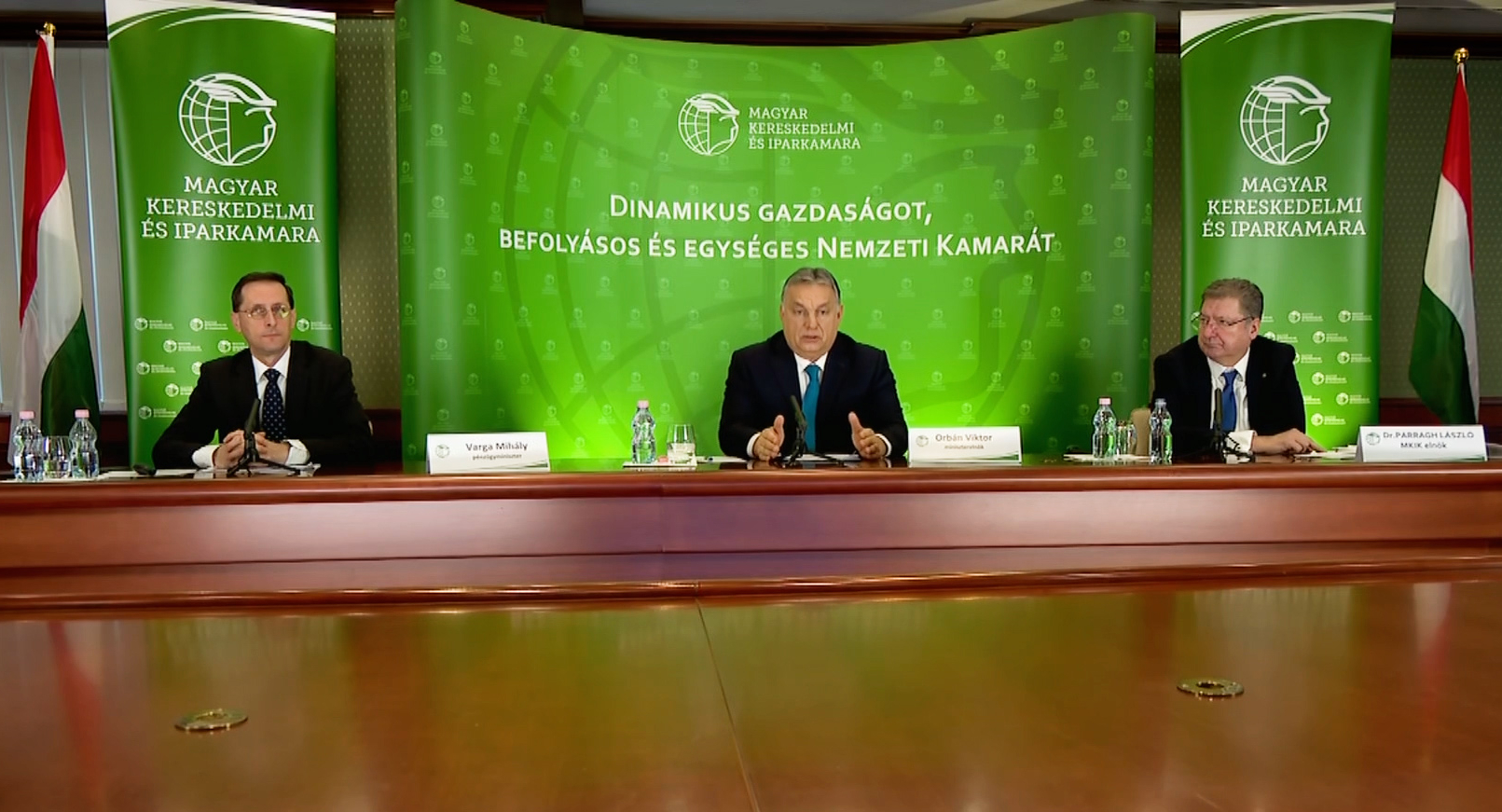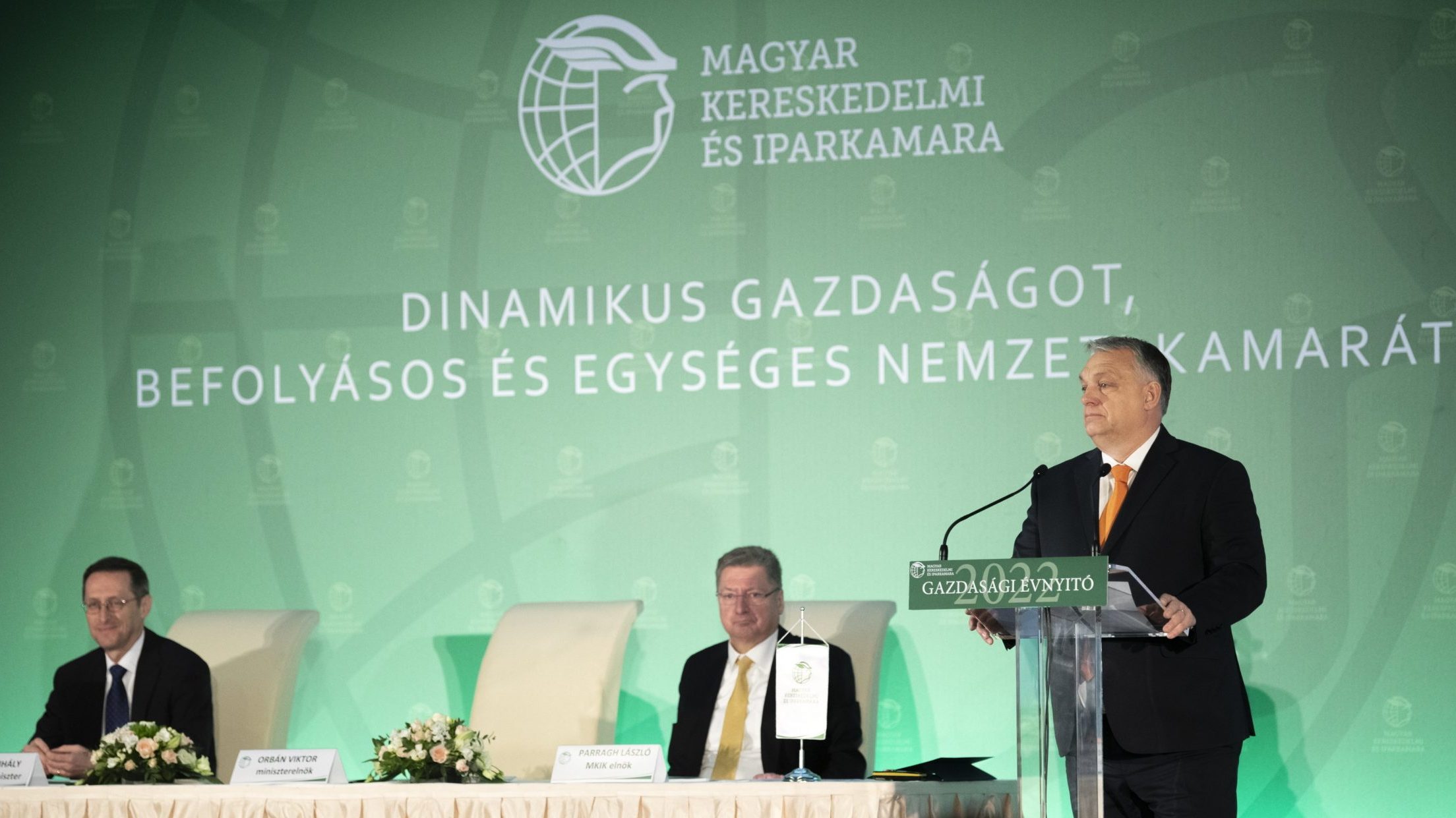
He said, before the pandemic, the Hungarian economy had broken record after record. However, the crisis brought on by the coronavirus pandemic – while it was unable to knock the economy off its feet – “punched it hard in the stomach,” and a period of defensive measures started.
The Prime Minister took stock of the already completed economy protection action plan which, he said, had achieved its goal, the retention of jobs, as in December 2020, the same number of people had jobs as before the pandemic, in December 2019. The number of those in employment reached 4.5 million again, he stressed, adding that in Hungary unemployment is the third lowest in the EU.
Among the measures of the economy protection action plan, the Prime Minister mentioned the introduction of a credit debt repayment moratorium which has left HUF 3,000 billion in the pockets of families and businesses, and the furlough grants provided in sectors which are now in a difficult position.
He said, in these sectors, the government has cancelled the social contribution tax and has halved the local trade tax. At the same time, they provided investment grants to 1,434 Hungarian businesses which has contributed to the retention of 280,000 jobs and the creation of tens of thousands more.
He said the government had resisted the temptation of returning to a benefit-based economy during the crisis.
In his address, the Prime Minister described the system of restrictions imposed due to the coronavirus epidemic as stable.
While crisis management in Western Europe involves the periodic easing and periodic tightening of restrictions, which could claim the lives of many hundreds of people, since November, the Hungarian system has been based on a set of restrictions developed together with members of the public, in accordance with the findings of the national consultation conducted in the summer, the Prime Minister said.
He indicated that in mid-February they would launch another national consultation, this time online, regarding the issues of opening the country in the wake of the epidemic.
“The wider application of the vaccine will open the way for a new era in the economy,” Mr Orbán stated, repeating that the government does not regard the vaccine as a political issue, “as far as we’re concerned, it doesn’t matter whether the cat is black or white, as long as it catches the mouse”.
He said once the government has conducted the February national consultation, “decisions could be adopted effective from 1 March and 1 April, or 3 April which is Easter”. “By that point, it is absolutely certain that we will have a less restricted life than we have at present, provided that we observe the rules in a disciplined manner until then,” he said.
Regarding the economy restarting action plan, he said it would be implemented in three phases: the first phase will extend from 1 January to 1 April, the second from 1 April to 1 July, while the third phase will last from 1 July until October.
Among the measures already implemented, he mentioned the reduction of the VAT on housing construction projects to 5 per cent, the preferential loan of maximum HUF 6 million provided for housing refurbishment projects, of which HUF 3 million is offered as a non-repayable grant, the commencement of the gradual re-introduction of the 13th monthly pension, and the exemption of young people under 25 from the payment of personal income tax from 2022. Regarding the construction of new homes, he observed that the goal is the construction of 40,000 new homes annually.
In the context of the second phase of the economy restarting action plan beginning from April, he said higher education will be the main focus; Finance Minister Mihály Varga has allocated development funds worth HUF 1,500 billion for this. At the same time, the Prime Minister expressed hope that this could be increased to as much as HUF 2,000 billion. He added that “universities which want to transform their operations” will be able to do so until 1 April.
The third phase, the period of major developments will start in July, and will fundamentally focus on green energy, the development of a circular economy and the full digitisation of the economy, the Prime Minister explained.
He added that regarding certain issues, such as the traditional values of family and migration, Hungary will be a strong opponent of Brussels, while regarding others, such as the green economy and digitisation, we will be its strongest ally.
He described the launch of the first calls for proposals of the agrarian and rural development strategy for the next 8 to 10 years as an important step of the restarting plan as well.
Mr Orbán further highlighted that the government, with its robust investment incentive programme, is making every effort in the race which is about bringing foreign investments to Hungary.
He mentioned that Hungary is seeking to preserve its significant regional position in the changeover from conventional to electric cars in the automotive industry.
He said the recession of the Hungarian economy in 2020 will be nearer to 5 than to 6 per cent according to his expectations.
In his address, he finally spoke about the development of the percentage of Hungarian ownership in the local economy. In the energy sector, it has risen from 29 per cent in 2010 to 59 per cent, in the banking sector from 40 per cent to 57 per cent, while in the media Hungarian ownership has increased from 34 per cent to 55 per cent. He observed at the same time that in the retail sector they had failed to achieve a breakthrough. “It’s giving us all a headache […] how we could change this situation,” the Prime Minister said, adding that in the future they would like to reach a Hungarian ownership share above 50 per cent in the information and communication sector, the construction materials industry and the manufacture of railway rolling stock.

